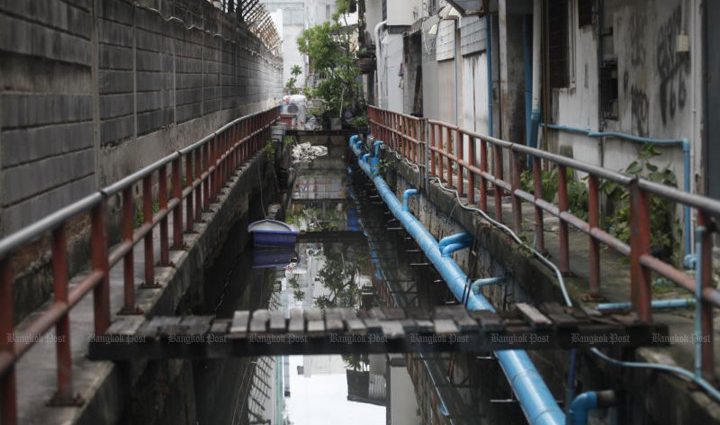
City Hall plans to introduce wastewater treatment fees for commercial buildings in Bangkok this year, but not for households.
Governor Chadchart Sittipunt said on Tuesday the Bangkok Metropolitan Administration (BMA) would request water user details from the Metropolitan Waterworks Authority (MWA), to be used as a basis for calculating the collection of wastewater treatment fees.
Billing of commercial premises would begin by the end of this year.
He said the BMA could not install meters to check on wastewater. It would consult the MWA about the installation of meters to register the volume of wastewater discharged into the drainage system.
About 100,000 building operators would have to pay waste treatment fees, Mr Chadchart said. The city would explain to the people why this was necessary.
Those who produce huge volumes of waste water should have to pay more, he said. The public would also be encouraged to save water, and office buildings would have to introduce water saving measures to reduce consumption, he said.
The BMA currently provides wastewater treatment free of charge. Its eight plants treat water from commercial buildings and households before it is discharged into the Chao Phraya River. This costs about 600 million baht a year.
Waste treatment fees for category 2 buildings would be set at 4 baht per discharged cubic metre. This would apply to office buildings in the public and private sectors, organisations and workplaces that use no more than 2,000 cubic metres of water per month.
Buildings in category 3 – hotels, factories and workplaces that use more than 2,000 cubic metres per month – would be charged 8 baht per cubic metre of discharged wastewater.
“To easily calculate it, 80% of water used each month is wastewater. Multiple that by 8 baht, in the case of category 3, to get what it will cost,’’ the governor said.
Households, condominiums, apartment buildings and dormitories would not be charged for wastewater treatment, he said.
An advantage of paying for wastewater treatment was that businesses could discharge it into the central waste treatment system without the need to treat it themselves. This would reduce their costs, Mr Chadchart said.

